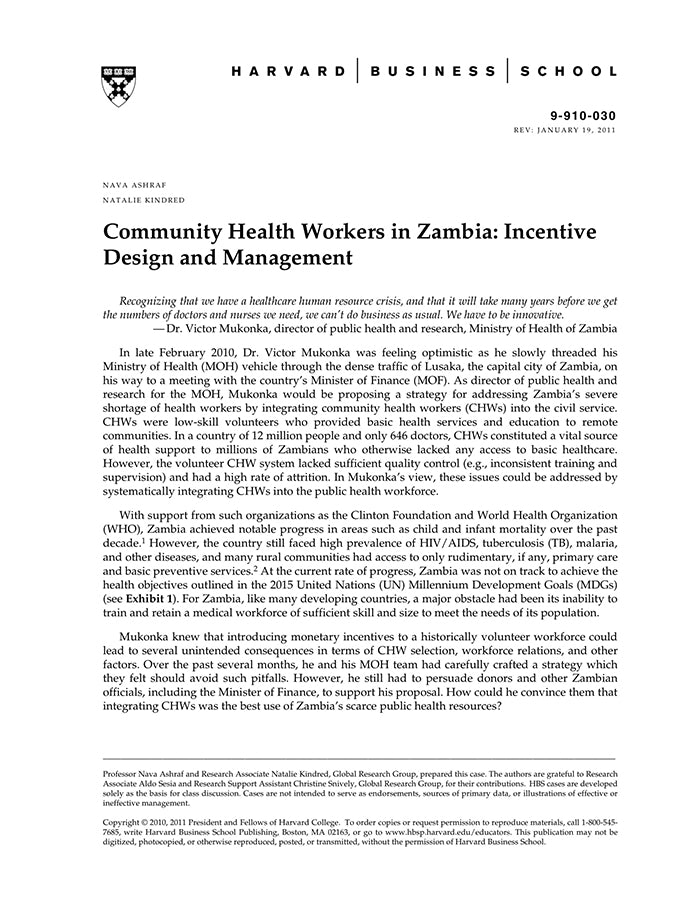Community Health Workers in Zambia: Incentive Design and Management
受取状況を読み込めませんでした
This case examines the various considerations relevant to selecting and compensating workers in a context where their work involves a pro-social component. This is relevant to not only health care in Zambia, but to NGO and public sector workers who are both motivated by the mission of their positions and the remuneration. Zambia was facing a healthcare human resource crisis with less than half of the healthcare workers needed to meet health needs. Yet, it was simultaneously burdened by high incidence of diseases such as HIV/AIDS, TB, malaria, malnutrition, and respiratory and diarrheal diseases. The Zambian Ministry of Health (MoH) realized that in the short term, it would be impossible to train the number of doctors and nurses needed to fill this gap. Thus, they were considering incorporating the primarily volunteer community health worker (CHW) force into salaried health workers of the MoH. Given the high level of personal commitment and dedication combined with the proper education and skill needed to be an effective community health worker, the MoH was struggling to identify the best strategy to recruit and retain motivated and capable CHWs.
【書誌情報】
ページ数:31ページ
サイズ:A4
商品番号:HBSP-910030
発行日:2010/3/2
登録日:2011/4/13


